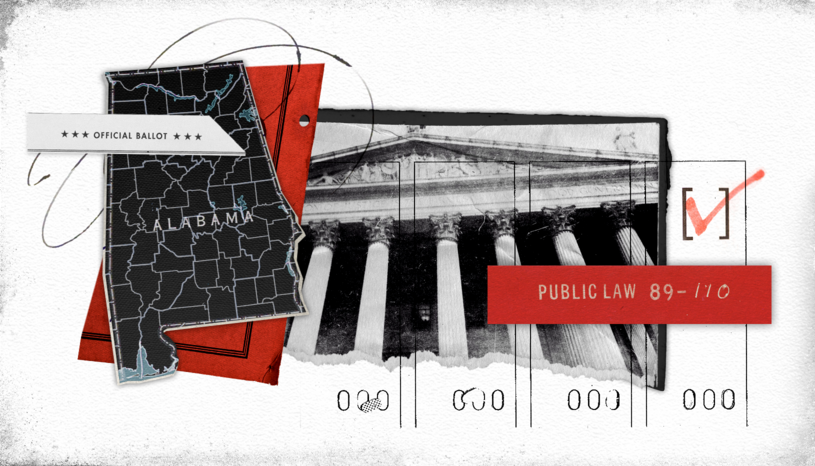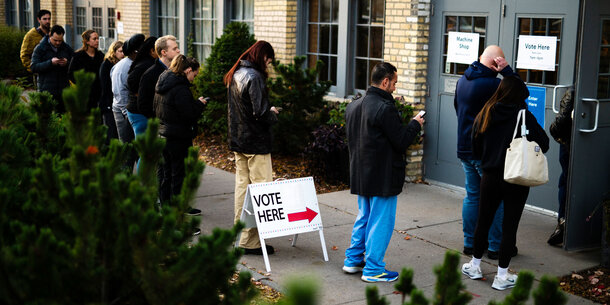In November 2021, groups of individual Black voters and Black-led community and civil rights organizations filed two lawsuits alleging that Alabama’s new congressional map was designed to dilute Black Alabamans’ votes: Caster v. Merrill and Milligan v. Merrill. The lawsuits argued that the map intentionally perpetuates a long history of discrimination against Black voters by packing a large segment of Black voters into a single heavily Black congressional district and cracking the remaining voters among multiple districts dominated by white voters, thereby diluting Black political power. Under the map, Black voters have the opportunity to elect a candidate of choice in only one of seven districts (14 percent of districts) despite making up around 27 percent of the state’s voting age population.
On January 24, 2022, the district court hearing the cases preliminarily blocked Alabama’s new congressional map, finding that the map was substantially likely to violate Section 2 of the Voting Rights Act and ordered the Alabama legislature to create a second Black opportunity district in time for the 2022 midterms.
However, Alabama appealed the decision, and, on February 7, 2022, the Supreme Court agreed to hear the case and stayed the lower court’s judgments pending appeal.
On July 18, 2022, the Brennan Center in partnership with pro bono counsel Debevoise & Plimpton filed an amicus brief in support of the appellees and respondents urging the court to uphold the lower court’s decision finding that Alabama’s map did indeed violate Section 2.
The brief argues that far from imposing a mandate to draw majority-minority districts whenever a minority group is large enough, Section 2 is a well-calibrated test that targets serious cases of actual discrimination in line-drawing.
The brief also argues that the Gingles framework developed by courts gives states multiple ways to create electoral districts that comply with Section 2 other than creating majority-minority districts. Furthermore, it discusses how the Gingles framework contains multiple built-in safeguards that prevent improper overuse of race in redistricting.
The Supreme Court heard oral arguments on October 4, 2022.


